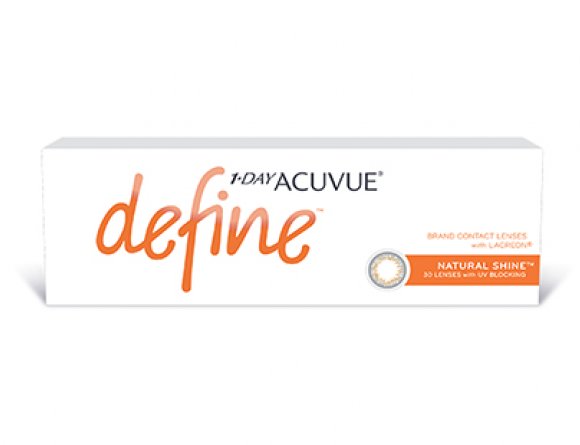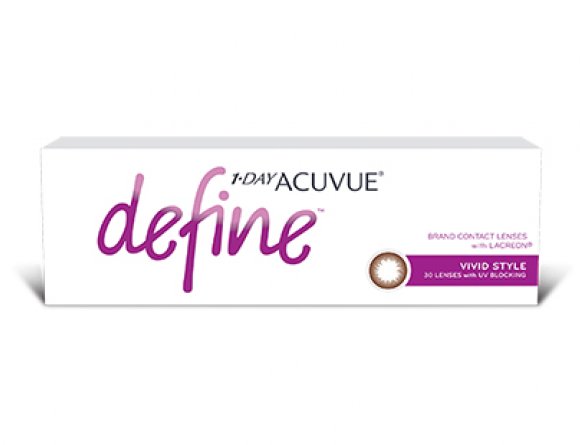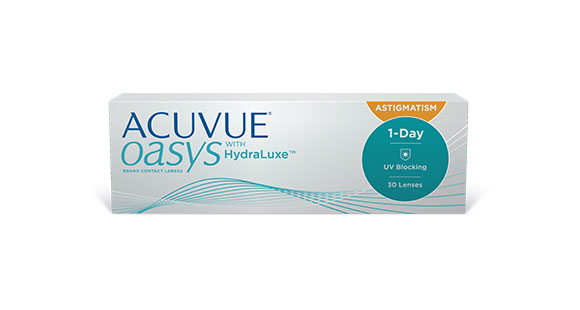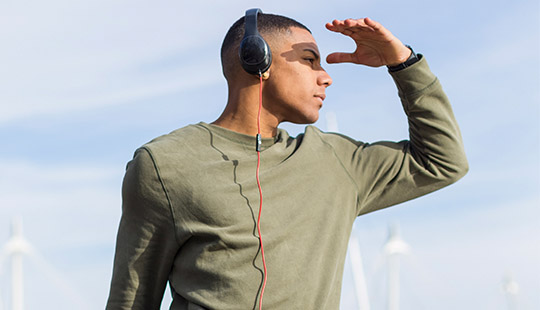1-DAY ACUVUE® DEFINE®
1-DAY ACUVUE® DEFINE®
Instructional Guides
Instructional Guides
Instructional Guides
1-DAY ACUVUE® DEFINE® Brand Contact Lenses with LACREON® Technology are made with BEAUTY WRAPPED IN COMFORT® Technology. Patients can experience a colour boost in three different designs.
- Built on the 1-DAY ACUVUE® MOIST Contact Lenses with LACREON® Technology platform.
- Available in three effects that uniquely complement each iris: NATURAL SHINE®, ACCENT STYLE, and VIVID STYLE.
- Provides a boost to natural eye colour
- Available in three different designs
- Enhances the eye’s natural beauty by adding definition to the limbal ring
8.5 mm base curve/14.2 mm diameter
Power Ranges
+1.00D to –0.50D (0.50D steps)
–0.75D to –6.00D (0.25D steps)
–6.50D to –9.00D (0.50D steps)
Including plano
| Lens material | Etafilcon A |
| Technology | LACREON® |
| Dk/t (edge-corrected)* | 25.5 x 10-9 |
| Water content | 58% |
| UV blocker† | Class 2 |
| Centre thickness at -3.00D (mm) | 0.084 |
| Package size | 30 lenses |
Innovative Technology
Our innovative new contact lenses enhance the natural beauty of the eye, adding natural-looking definition to the limbal ring.
* Oxygen transmissibility at centre - 3.00D lens using boundary-corrected, edge-corrected Dk values. Units: (cm/sec) (ml O2/ml x mm Hg) at 35° C.
† Helps protect against transmission of harmful UV radiation to the cornea and into the eye.
WARNING: UV-absorbing contact lenses are NOT substitutes for protective UV-absorbing eyewear such as UV-absorbing goggles or sunglasses because they do not completely cover the eye and surrounding area. You should continue to use UV-absorbing eyewear as directed. NOTE: Long-term exposure to UV radiation is one of the risk factors associated with cataracts. Exposure is based on a number of factors such as environmental conditions (altitude, geography, cloud cover) and personal factors (extent and nature of outdoor activities). UV-blocking contact lenses help provide protection against harmful UV radiation. However, clinical studies have not been done to demonstrate that wearing UV-blocking contact lenses reduces the risk of developing cataracts or other eye disorders.











